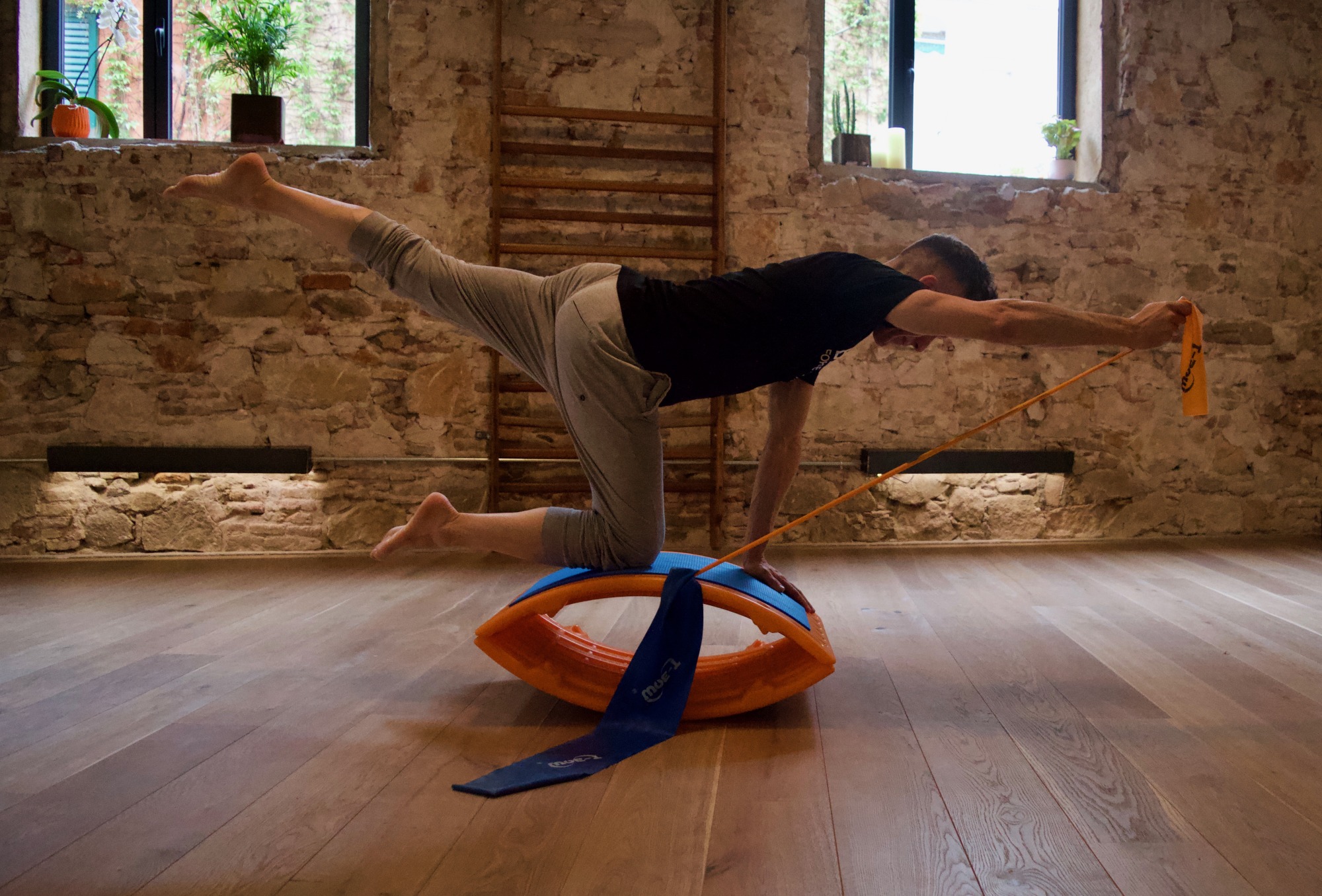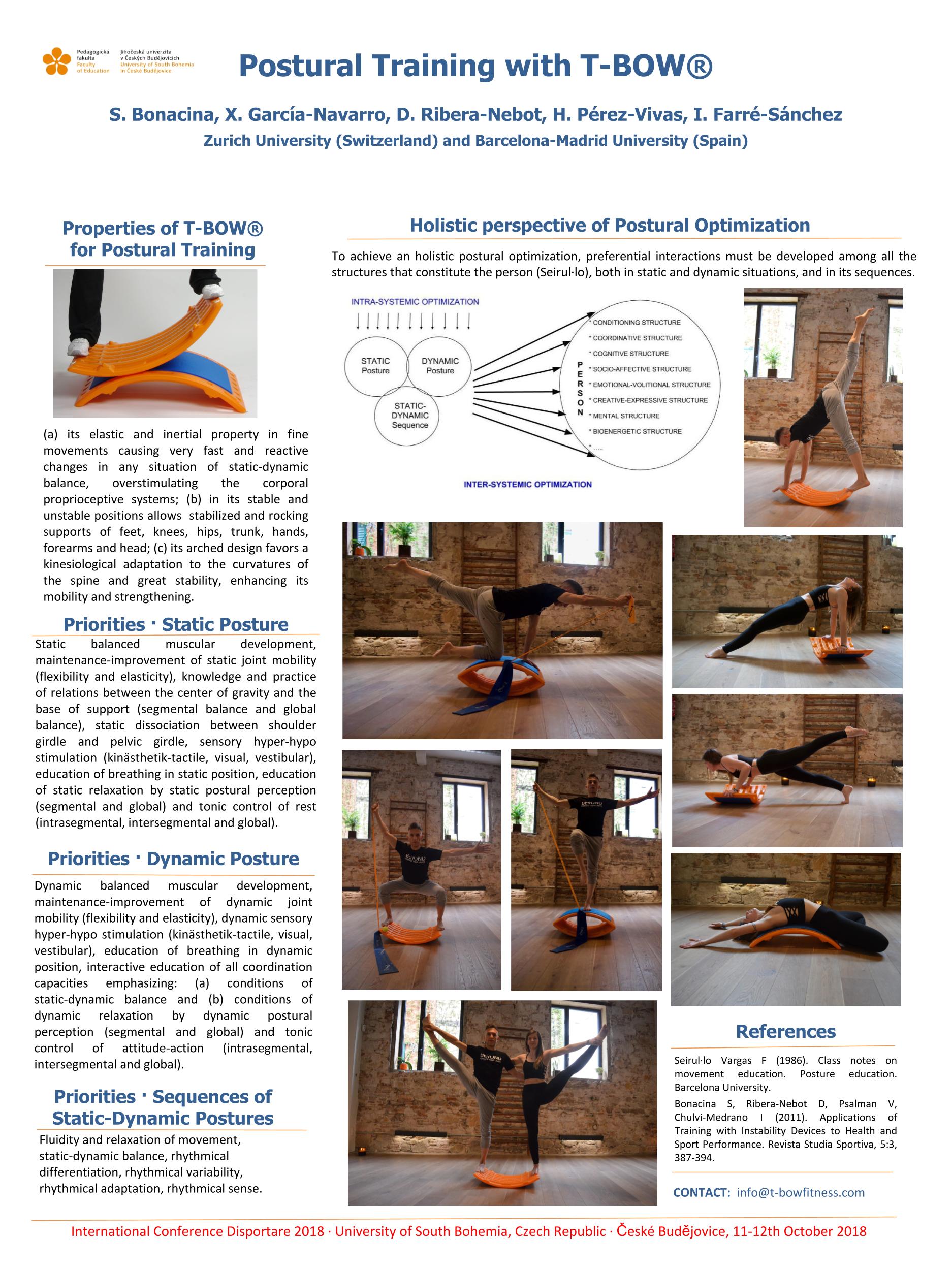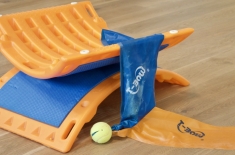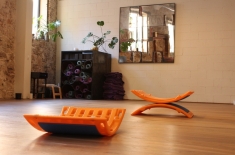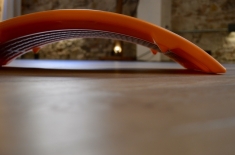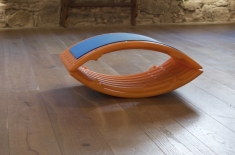Nature of YOGA T-BOW®
La filosofía de desarrollo del Yoga con T-BOW® es aportar una selección de recursos diferenciales del T-BOW® para facilitar, enriquecer y ampliar las posturas y encadenamientos posturales del Yoga a partir de una perspectiva holística de optimización de la persona que permita una educación postural personalizada.
La base de los ejercicios surge de las propuestas que Sandra Bonacina ha diseñado con el T-BOW® investigando las necesidades de la fisioterapia motriz en la universidad de Zurich (Suiza) desde 1994. A este repertorio de ejercicios posturales con el T-BOW® y su combinación con las experiencias milenarias de desarrollo postural del Yoga seleccionadas por el yogui F.Xavier García-Navarro en su Escola Ganesh, se le aplican los recursos de educación y entrenamiento postural propuestos por el maestro Seirul·lo Vargas para conseguir una optimización extraordinaria de la postura. Se presta especial atención a que las personas con niveles muy básicos de equilibrio, fuerza y movilidad consigan evolucionar en su optimización postural con confianza y satisfacción. Se aplican metodologías experimentadas por los entrenadores de gimnasia artística para dar seguridad al practicante, especialmente en las posturas invertidas. Se cuida la esencia del Yoga (las asanas o posturas, los pranayamas o ejercicios respiratorios, la relajación y la consciencia-meditación) con énfasis en el auto-control, la auto-evaluación y la reflexión para optimizar el conocimiento y consciencia de uno mismo, posibilitando así los más altos niveles de bienestar y satisfacción personal, con intuición y creatividad.
Se proponen sesiones de Yoga donde todas las posturas se realizan con T-BOW®, otras donde se combinan posturas sin y con T-BOW®, otras sin T-BOW® en cualquier situación y seleccionando lo mejor de cualquier estilo de Yoga.
Ámbitos de aplicación:
a) Salud postural para la vida diaria, la actividad laboral y la reeducación de problemas posturales (perspectiva higiénico-reeducadora)
b) Educación postural que optimiza la persona para la vida (perspectiva educativa)
c) Postura de rendimiento motriz sin lesión, postura de rendimiento motriz expresiva y una postura de estética personal (perspectiva expresivo-creativa).

The philosophy of development of Yoga with T-BOW® is to
provide a selection of differential resources of the T-BOW®
to facilitate, enrich and extend postures and postural
sequences of Yoga from an holistic perspective of
optimization of the person that allows a personalized
postural education. The basis of the exercises comes from the proposals that
Sandra Bonacina has designed with the T-BOW® investigating
the needs of physiotherapy at the University of Zurich
(Switzerland) since 1994. To this repertory of postural
exercises with the T-BOW® and its combination with the
millenary experiences of postural development of Yoga selected by the yogui F. Xavier
García-Navarro in his Escola Ganesh, the resources of postural education and training proposed by professor Seirul·lo Vargas are applied in order to achieve
an extraordinary optimization of the posture.
Special attention is taken so that people with very basic
levels of balance, strength and mobility are able to evolve
in their postural optimization with confidence and
satisfaction. Methodologies experienced by the gymnastics coaches are
applied to provide security to the practitioner, especially
in the inverted postures. The essence of Yoga is maintained (asanas or postures,
pranayamas or breathing exercises, relaxation and
consciousness-meditation) with an emphasis on self-control,
self-evaluation and reflection to optimize one's knowledge
and awareness , thus enabling the highest levels of
well-being and personal satisfaction, with intuition and creativity. Yoga sessions are proposed where all postures are performed with T-BOW®, others where postures are combined with and without T-BOW®, as well as others without T-BOW® in any situation and selecting the best of any style of Yoga.
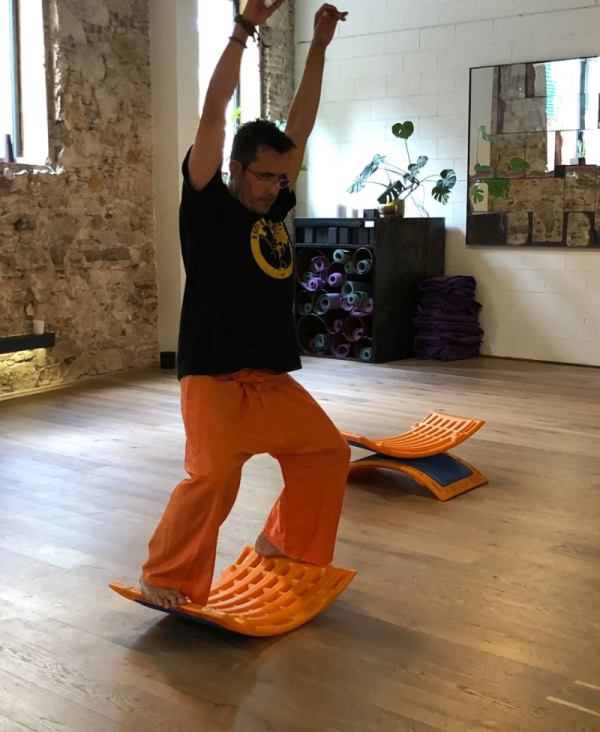
a) Postural health for daily life, work activity and
reeducation of postural problems (hygienic-reeducation
perspective)
b) Postural education that optimizes the person for life
(educational perspective)
c) Posture of motor performance without injury, posture of
expressive motor performance and a posture of personal
aesthetics (expressive-creative perspective).

Science of Postural Optimization

Science of Instability Training






